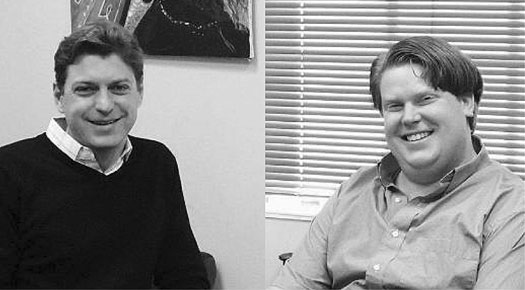
Two atheist authors have together published a secular version of the Ten Commandments in a book they co-authored, after entering a global contest offering a $10,000 reward, that received as many as 2,800 submissions from 18 different countries.
“A lot of atheists' books are about whether to believe in God or not,” said one of the authors, Lex Bayer. “We wanted to consider: OK, so you don't believe in God, what's next? And that's actually a much harder question.”
Bayer, who also works as an executive with AirBnB, wrote the book “Atheist Mind, Humanist Heart” along with John Figdor, who is a humanist chaplain at Stanford University. The contest aimed at compiling a list of ten non-commandments that would serve as an alternative to the ten commandments that were handed down to Moses by God on Mount Sinai, as narrated in Exodus 20:1-17.

The ten non-commandments that were eventually chosen by Bayer and Figdor for their book are listed below:
- Be open-minded and be willing to alter your beliefs with new evidence
- Strive to understand what is most likely to be true, not to believe what you wish to be true
- The scientific method is the most reliable way of understanding the natural world
- Every person has the right to control of their body
- God is not necessary to be a good person or to live a full and meaningful life
- Be mindful of the consequences of all your actions and recognize that you must take responsibility for them
- Treat others as you would want them to treat you, and can reasonably expect them to want to be treated; think about their perspective
- We have the responsibility to consider others, including future generations
- There is no one right way to live
- Leave the world a better place than you found it
In an interview earlier this year, Bayer and Figdor said secularism is on the rise in America, crediting the change to a new generation that seeks evidence and proof for any claim before accepting it.
“Given the beliefs of the 'pics or it didn't happen' generation, it isn't hard to see why the traditional religious worldview, which advocates for 'faith in things unseen,' is becoming less popular,” the authors argued. “Should we really take it on faith that the Earth is 6,000 years old, that evolution is false or possibly a conspiracy, or that prayer is more powerful than medicine?”

The duo also said while a lot has been written about what atheists do not believe in, they wanted their book to focus on what atheists do believe in for a change.
“We wrote our book in hopes not only of educating people about the positive beliefs and values of the nonreligious, but also of inspiring other nonbelievers to come out and share their beliefs and values,” Bayer and Figdor stated.
Earlier this year, The Barna Group carried out a survey that concluded as many as 38 percent Americans do not identify with any particular religion. The survey also found that four out of 10 Americans could be grouped as post-Christians, who are fundamentally secular in belief as well as practice.
Photo Credits: Dagen
